How to Stay out of Trouble Visiting Northern Ireland
Northern Ireland is a complicated place, but it’s a generally safe and welcoming destination these days – just be mindful of talking about politics and religion.
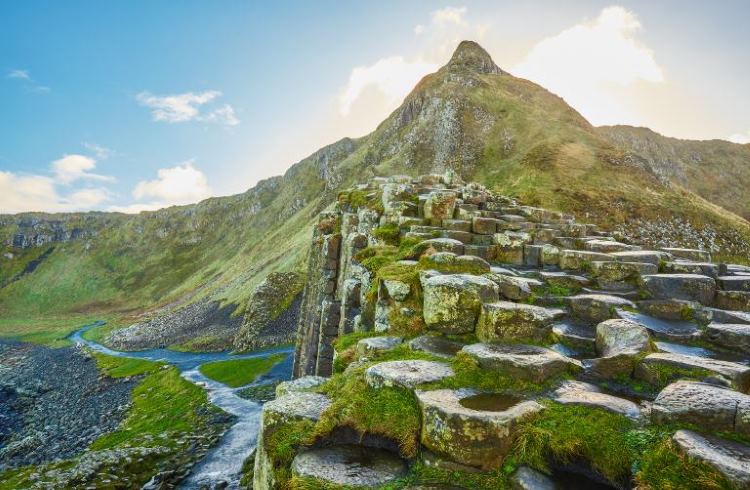 Photo © Getty Images / Peter Unger
Photo © Getty Images / Peter Unger
Many people have outdated perceptions of beautiful Northern Ireland, a country colored by grim memories of regular bombings up until the 1990s. Granted, it remains a complicated place, due to a combustible mix of religion and politics, but during my recent years of living on and off in the Republic of Ireland, near the border with Northern Ireland, I’ve found that latter country to be a safe, welcoming destination for tourists who behave courteously.
Northern Ireland’s troubled history
Almost 100 years ago, Ireland earned independence from the UK, but was split in two. The Republic of Ireland operates as an independent nation, while Northern Ireland is still controlled by the UK. That separation of Ireland has long been a volatile issue, never more so than between the late 1960s and late 1990s.
Known as ‘The Troubles’, this era was marred by politically motivated bombings and by deadly clashes between Catholic “Republicans”, who sought for Ireland to be reunited, and Protestant “Loyalists” who wanted Northern Ireland to remain in the UK.
During this turbulent period, thousands of people were killed in sectarian violence between Catholics and Protestants, which was concentrated in Northern Ireland. After years of efforts to broker a peace deal, in 1998 the UK and the Republic of Ireland signed the Good Friday Agreement. That accord marked the end of The Troubles, and included a raft of measures to improve relations between the Republic of Ireland and the UK.
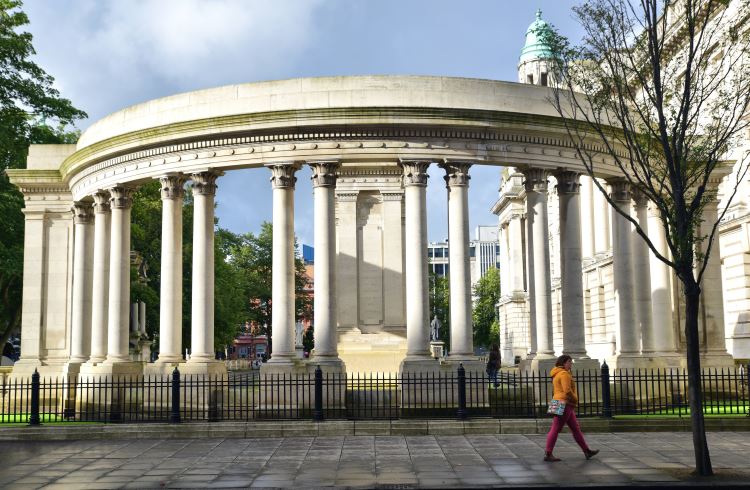
Recent violent incidents in Northern Ireland
Sectarian violence has plummeted in Northern Ireland in recent years. Police statistics show that, over the past decade, the number of annual incidents of such violence has almost halved. But the infamous “Brexit” agreement – the United Kingdom’s decision to leave the European Union – has created uncertainty and stoked sectarian tensions in Northern Ireland.
A new trade border between Ireland and the UK, prompted by Brexit, has angered a coalition of Loyalist paramilitary groups, who in March 2021 told the UK Government they no longer supported the 1998 peace deal due. While these groups have not yet become violent, there are fears they could. Since 1998, the major paramilitary groups in Northern Ireland – both Loyalist and Republican – have rarely launched attacks, with most bloody incidents caused by dissident groups who never supported the peace accord.
The highest profile sectarian violence in recent times was the April 2019 death of Northern Ireland journalist Lyra McKee. During a riot, prompted by a police crackdown on paramilitary groups, McKee was shot by a member of the New IRA, a Republican paramilitary organisation. The most common flashpoint for sectarian violence has been the annual Loyalist marches in Northern Ireland – displays of pro-British sentiment. Tourists are strongly advised not to attend such marches, which take place between April and July each year, with the largest being the Orange Walk on July 12.
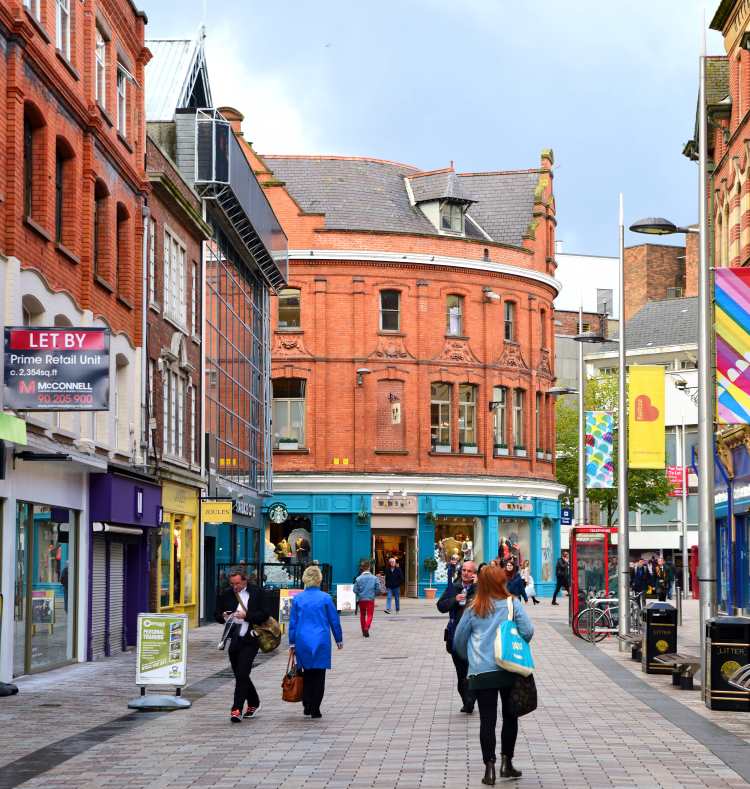
How to negotiate the Northern Ireland border
The border between Northern Ireland and the Republic of Ireland has been all but invisible since 1998, when all checkpoints were removed as part of the Good Friday agreement. These days a tourist could cross over this border without even realizing.
If they didn’t notice the roadside sign saying “Welcome to Northern Ireland”, they may wonder why all the speed limits are suddenly so low. That’s because in Northern Ireland they use miles per hour, instead of kilometres, which is important to note if you’re on a self-driving holiday.
They also use Great British Pound Sterling currency, not the Euro as in the Republic of Ireland, so it’s best to change some money at a bank in the south before crossing over into the north. And don’t worry, despite Brexit, foreign tourists don’t currently need separate visas for the UK and the Republic to cross back and forth across this border. But travelers should double check this before heading to Ireland.
Northern Ireland’s famous murals are serious business
“Just do it very quickly,” my mother told me on our most recent visit to Belfast, when I started to photograph political murals splashed on the side of suburban buildings. These emotionally-charged paintings have become popular tourist attractions.
But it’s crucial that visitors remember that most of these murals are linked to Ireland’s sectarian divide, and so they demand respect. Taking too many photos, lingering too long, or acting in a boisterous manner could be perceived as an insult by some locals. This is especially important in neighborhoods throughout Northern Ireland considered strongholds of Catholics or Protestants. There are too many such areas to list here, so the best bet is to behave courteously everywhere you go.
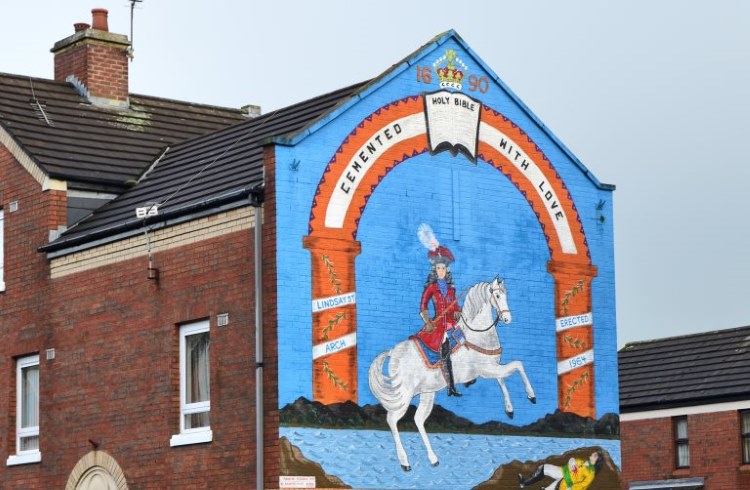
Stay low-key to avoid problems
Although political violence is, fortunately, now rare in Northern Ireland, tensions remain between Loyalists and Republicans. This strain is particularly strong in certain towns or neighborhoods. The easiest way to avoid problems is to be unobtrusive.
If you don’t discuss Ireland’s politics or religion in public, then you have little chance of offending anyone. It’s a bit trickier when it comes to the name of one Northern Irish city, with many Loyalists calling it Londonderry and Republicans preferring Derry. There’s no right answer here, but a local is very unlikely to take issue with a tourist using the “wrong” name for this city.
What locals may find offensive, however, is the wearing of clothes that could be construed as a political statement. That could be as simple as a garment or fashion accessory decorated with Britain’s Union Jack symbol. It also extends to wearing a jersey of the Scottish soccer teams, Celtics or Rangers. The former club is strongly supported by Catholics, while the latter is viewed as a Protestant team. Dress in a non-controversial manner, and avoid discussing touchy subjects, and you’ll have a safe and enjoyable holiday in Northern Ireland
Note: This article was recently updated to address some of the comments below.
Related articles
Simple and flexible travel insurance
You can buy at home or while traveling, and claim online from anywhere in the world. With 150+ adventure activities covered and 24/7 emergency assistance.
Get a quote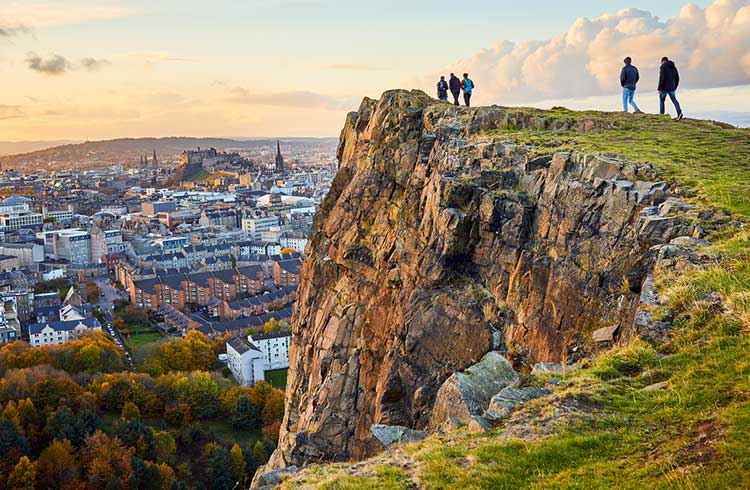

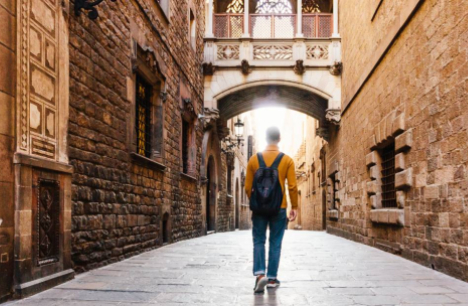
9 Comments
I am planning to visit northern Ireland this year and this has really helped me to make up my mind. My friend lived there for a year and advised me against going for many of the reasons stated above but after reading this I now want to go more than ever haha just won't be with my friend :( bonny portmore here I come :)
It is Shankill not Shankhill for goodness sake
Well living in Northern Ireland all my life, I will not be perusing any other this website for honest travel information.
The article is peppered with falsehoods and inaccuracies throughout. Eg this nugget "In the Republic they talk about the city Derry, yet immediately on the other side of the border, it's universally known as Londonderry"
Haha - The city council is called "Derry City Council" the airport is called "Derry City" I'd hardly call that universal usage of the term "Londonderry"
This:
"These days there aren‘t set up border controls and checks but once in Northern Ireland if you see signs notifying you are in a security or controlled area, then obey them. If you park your car in these areas it could be removed or destroyed.
Similarly if you are pulled over by police, just do what they say and act normal. And if you are asked to leave an area by security personnel, do so"
I would imagine the writer of this article suffers from an over active imagination and quite possibly bouts of hysteria.
And by the way, the opening photograph shows the Sliabh Liag cliffs in County Donegal which while in the North of the country is still not "Northern Ireland". If the author of this article had really visited this country he would know that.
Move along now and instead seek honest information from the official tourist board or honest blogs
As someone who lives in Belfast my only concern with the information is that 'LondonDerry' is not as stated universally used in the North, infact it is very insulting phrase to nationalists. Derry is a majority nationalist city and most people refer to it as Derry City. The term London Derry is used exclusively by Loyalists or official British news broadcasts.
Ye it's totally safe.
Just don't do this , don't do that, don't say this , don't say that ...
Maybe i'll go to Scotland instead.
I'm from England and have visited Northern Ireland twice (and I've visited the Republic of Ireland about 5 times).
It is insanely safe. The biggest problem you will have is getting drunk in a city centre and encountering testosterone-fuelled men who are looking for a scrap. That would be my main warning - as in any UK or Irish city - just keep your wits about you when on a night out, due to potential for alcohol-fuelled violence.
Having said that, I had some great nights out and didn't encounter any trouble.
As for general crime - I believe Belfast (NI's largest city) is one of the safest cities in the UK and one of the safest in Europe. Just keep normal protocols in place such as any other city, such as watch your pocket in crowded areas etc.
Sectarianism has pretty much disappeared. You get the odd minor riot in flashpoint areas such as the boundary between a nationalist and loyalist neighbourhood, but these are infrequent and relatively calm in manner. And why would you as a tourist be wandering around a random council estate anyway? I don't go to New York and start wondering around ghettos on the edge of the city.
You will be extremely unlikely to encounter any trouble. Like I said, the main trouble will be getting into a skirmish on a night out. And even that's unlikely.
There are a few differences you'll notice between Northern Ireland and the rest of the UK (and Ireland for that matter).
The police in NI carry sidearms, as standard. This is not the case in the rest of the UK or the Republic. This is testament to the slightly elevated risk of sectarianism turning violent compared to other parts of the British Isles. Police vehicles are also different. You often see (not exclusively) armoured land rovers.
You'll notice also a lot of Irish stores that you don't find in the UK, such as Scally's, Dunnestores etc.
You'll also find a lot barriers in the main cities - especially Derry and Belfast. These are to separate rival sections of society (the nationalists and loyalists) and to keep them apart. There are gateways that are open most of the time, but these can close at night and during tense times.
If you travel to border areas, especially in Armagh, you will see advertisements which have Irish telephone numbers on them rather than British ones. A sign that you are in a nationalist neighbourhood/area.
If you visit NI you will not encounter any trouble. Just stick to main tourist areas and don't talk about your feelings on NI politics. Even then, you probably won't encounter trouble.
It's a very fun place to go. Belfast is much more enjoyable (and affordable) than Dublin.
In that case. I'll never visit. What a powder keg.
I’m thinking of visiting Derry/Londonderry for halloween but am concerned about my car with British plates and if it will be safe when parked. Could anyone please advise? Thanks
I will be attending a wedding in NI in Jan '23. I have been advised not to make any conversation about religion or politics. I have also been advised that English are not liked in pubs in the area we are visiting. The previous comment asked about UK registration plates, I ask the same question, although ours are private, the vehicle is a pickup. We will be leaving the hotel and then staying on the Causeway Coast for a week. Although I have driven through Belfast before I have never stayed in NI but gone on to the Republic.